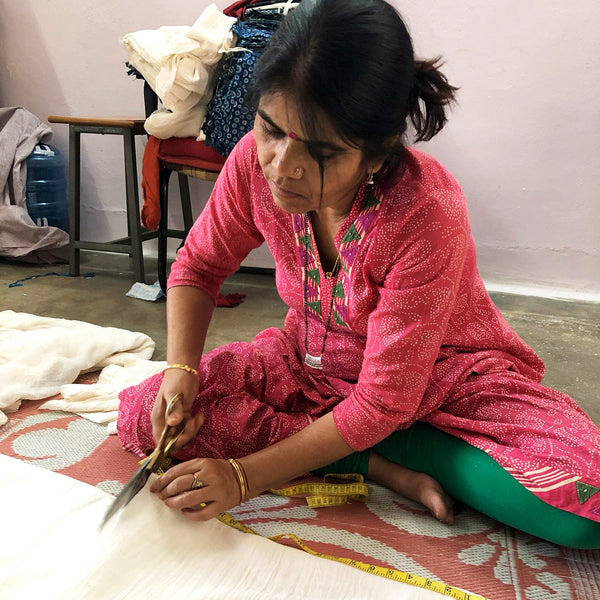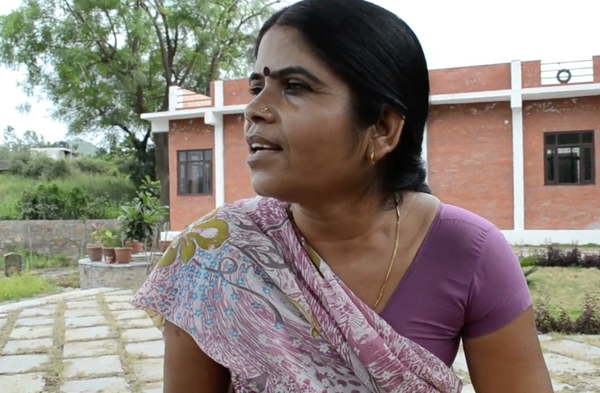Choti's Story: Her journey as a maker, leader, and advocate
If you love the hand-stitched details on our dresses, you have been admiring the work of women like Choti. She is a member of a cooperative we partner with in Rajasthan, India and is one of a team of over 250 embroiderers in her village who bring creative passion to their work and transformation to their families and communities. We spoke with her on a visit to her village, and she shared how her work with the cooperative has brought changes to her community.
Fair Trade Cooperatives Support Women Empowerment
When I first joined this embroidery group, there were only 17 women. We started on simple items like bedspreads and cushions and worked our way up to more complicated projects. As a leader for the last 12 years and a trustee for 3, I’ve been able to participate in the decision making process and speak up for the artisans, watching the group grow in size, skills, and autonomy. We were even able to purchase our workshop’s land 8 years ago.

When we first started, there were a lot of problems in our village. We had nothing. We couldn’t even get milk for tea and had to pawn jewelry to make money. Daughters were expected to work at home, cooking rotis and subzis.
By earning through this work, I no longer have to go to money lenders. I have my own bank account. I sent my children to private schools. My oldest daughter will get her bachelor’s degree soon and her two siblings will also go to college. Things have changed and now everyone is paying attention to our daughters’ education.
Promoting Social Change
But the benefits I get from this group are not just financial. There is a lot of diversity among the 250 women involved in this project. We are all from different castes but we don’t feel like it. It is really nice that we are able to work, eat, and do everything together. We women work together to solve problems in our village. We’ve increased the cleanliness of the city and have brought in trainings for our children.

We have also united to communicate with the local government. For example, the water commissioner used to limit our water supply. This meant missing work to stand in line. We decided to stand up and demand action by blocking the road, which resulted in repaired water pumps 3 hours later. Now we have water regularly. In schools, when teachers did not show up, we questioned why they weren’t doing their job. We demanded they teach our children English. We fought with the hospital when they did not dispense medication. When we achieved all of this, they began to believe the strength that we bring. The authorities now understand that there is no use in challenging us.
Unless we raise our voices, we cannot make a difference.
